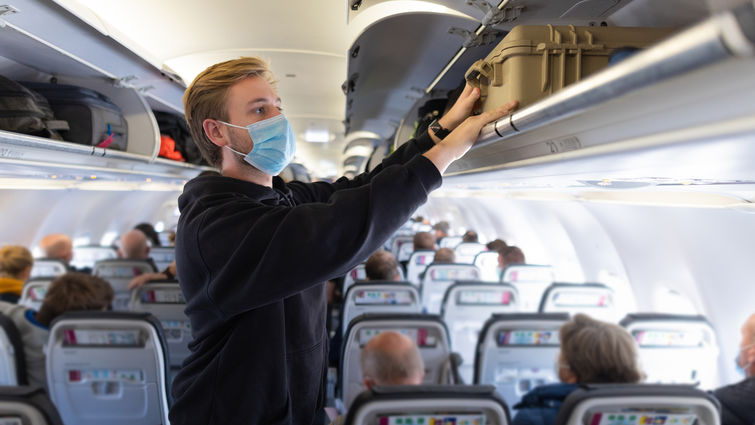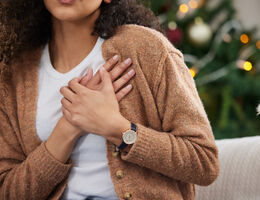

While numerous myths surround why travelers fall ill, recent studies suggest that the culprit might be closer than we think: the surfaces we touch rather than the air we breathe. Preventive medicine specialist, April Wilson, MD, MPH, FACPM, supports these findings and provides tips to prevent illness during holiday travel.
It's a common misconception that the recycled air in airplanes is a breeding ground for viruses and bacteria. However, Wilson says, "The air quality inside airplanes is generally quite good due to advanced filtration systems. The real concern lies in the surfaces passengers come in contact with during their journey."
An International Air Transport Association (IATA) study found that modern aircraft are equipped with High-Efficiency Particulate Air (HEPA) filters, which effectively remove more than 99% of airborne particles, including viruses. Therefore, the focus should shift from worrying about the air to paying attention to the surfaces being touched.
Wilson says research indicates that the transmission of infections on airplanes is often linked to the surfaces passengers encounter. Tray tables, armrests, and, seatbelt buckles can harbor germs for hours, if not days.
To prevent potential illnesses, she recommends adopting proactive measures such as regularly wiping personal space surfaces with disinfectant wipes. "Taking a few minutes to sanitize the immediate surroundings can significantly reduce the risk of contracting infections," Wilson says.
Practical tips for healthy travel
1. BYOW (Bring Your Own Wipes):
Always carry disinfectant wipes in your travel kit. Use them to clean tray tables, armrests, and other frequently touched surfaces.
2. Hand Hygiene:
Wash your hands regularly and use hand sanitizer, especially after touching communal surfaces. Wilson says proper hand hygiene is one of the simplest and most effective ways to prevent the spread of germs. Be conscious of what you touch and avoid unnecessary contact with surfaces. Consider using your knuckles or elbows instead of your fingertips when interacting with shared spaces. Avoid touching your face after touching potentially contaminated surfaces as this is often the entry portal for viruses and bacteria to make you ill.
3. Stay Hydrated:
Maintain good hydration levels, as it supports your immune system. Drink water throughout the journey to help your body fend off potential threats.
4. Boost Your Immune System:
Prioritize an antioxidant-rich diet, think fruits and vegetables, regular exercise, and adequate sleep before, during and after your trip. A strong immune system is your best defense against infections.
Read: The power of food as medicine during flu season
"By understanding the true sources of infection and adopting simple habits, we can enjoy our travels without compromising our health,” Wilson says. “It's not just about protecting ourselves – but about being responsible travelers and safeguarding the well-being of those around us.”
While impossible to eliminate all risks, travelers can significantly reduce their chances of falling ill by focusing on practical and evidence-based preventive measures, including getting a flu shot. To schedule a flu shot for you or your family, make a vaccine appointment on MyChart or contact Loma Linda University Primary Care at 909-255-3236.


